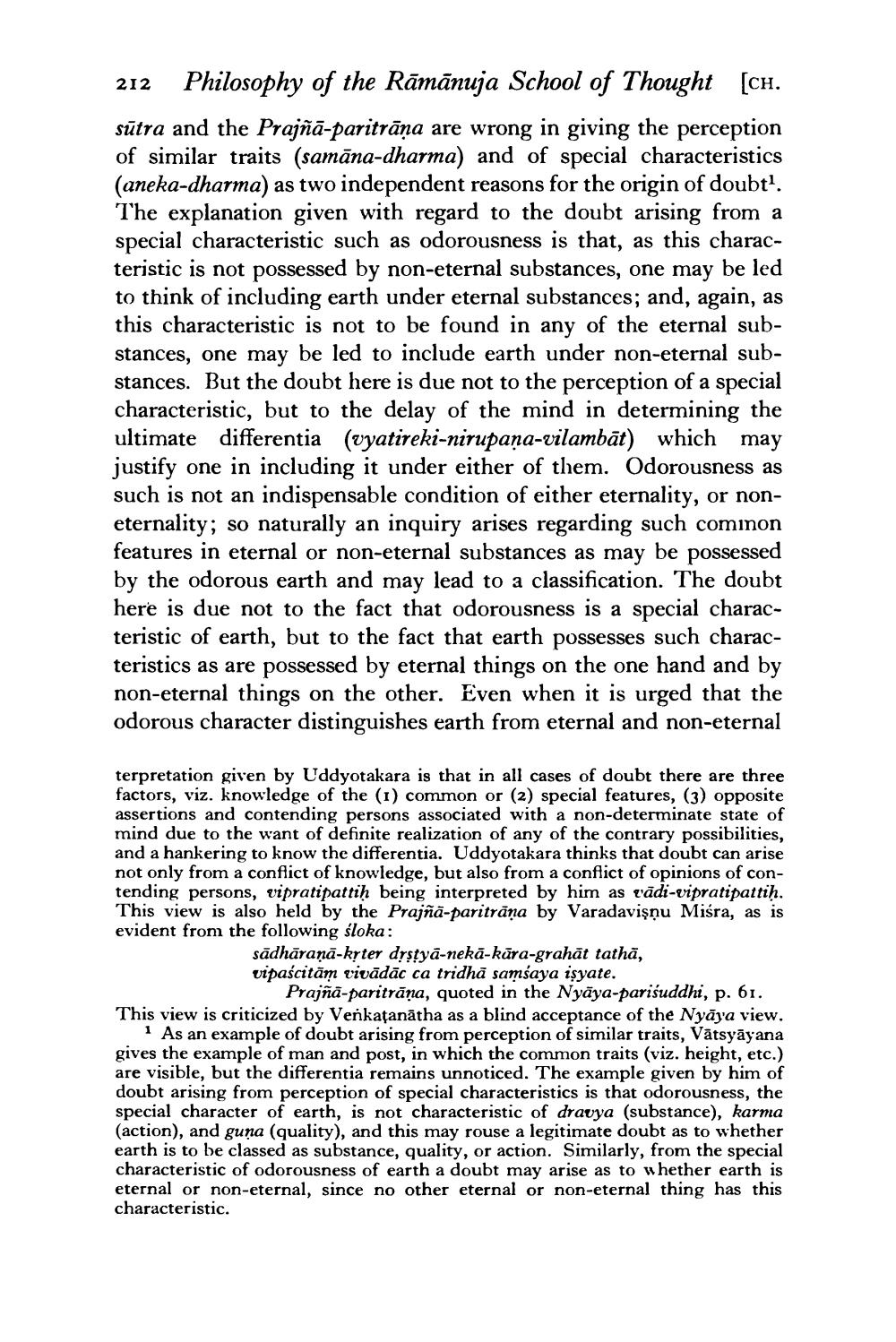________________
212 Philosophy of the Rāmānuja School of Thought [ch. sūtra and the Prajñā-paritrāņa are wrong in giving the perception of similar traits (samāna-dharma) and of special characteristics (aneka-dharma) as two independent reasons for the origin of doubt?. The explanation given with regard to the doubt arising from a special characteristic such as odorousness is that, as this characteristic is not possessed by non-eternal substances, one may be led to think of including earth under eternal substances; and, again, as this characteristic is not to be found in any of the eternal substances, one may be led to include earth under non-eternal substances. But the doubt here is due not to the perception of a special characteristic, but to the delay of the mind in determining the ultimate differentia (vyatireki-nirupaņa-vilambāt) which may justify one in including it under either of them. Odorousness as such is not an indispensable condition of either eternality, or noneternality; so naturally an inquiry arises regarding such cominon features in eternal or non-eternal substances as may be possessed by the odorous earth and may lead to a classification. The doubt here is due not to the fact that odorousness is a special characteristic of earth, but to the fact that earth possesses such characteristics as are possessed by eternal things on the one hand and by non-eternal things on the other. Even when it is urged that the odorous character distinguishes earth from eternal and non-eternal
terpretation given by Uddyotakara is that in all cases of doubt there are three factors, viz. knowledge of the (1) common or (2) special features, (3) opposite assertions and contending persons associated with a non-determinate state of mind due to the want of definite realization of any of the contrary possibilities, and a hankering to know the differentia. Uddyotakara thinks that doubt can arise not only from a conflict of knowledge, but also from a conflict of opinions of contending persons, vipratipattiḥ being interpreted by him as rādi-vipratipattiḥ. This view is also held by the Prajñā-paritrāņa by Varadavişņu Miśra, as is evident from the following śloka:
sādhāranā-krter drstyā-nekā-kūra-grahāt tathā, vipaścitām vivādāc ca tridhā samsaya işyate.
Prajñā-paritrāņa, quoted in the Nyāya-parisuddhi, p. 61. This view is criticized by Venkațanātha as a blind acceptance of the Nyāya view,
As an example of doubt arising from perception of similar traits, Vātsyāyana gives the example of man and post, in which the common traits (viz. height, etc.) are visible, but the differentia remains unnoticed. The example given by him of doubt arising from perception of special characteristics is that odorousness, the special character of earth, is not characteristic of drauya (substance), karma (action), and guna (quality), and this may rouse a legitimate doubt as to whether earth is to be classed as substance, quality, or action. Similarly, from the special characteristic of odorousness of earth a doubt may arise as to whether earth is eternal or non-eternal, since no other eternal or non-eternal thing has this characteristic.




